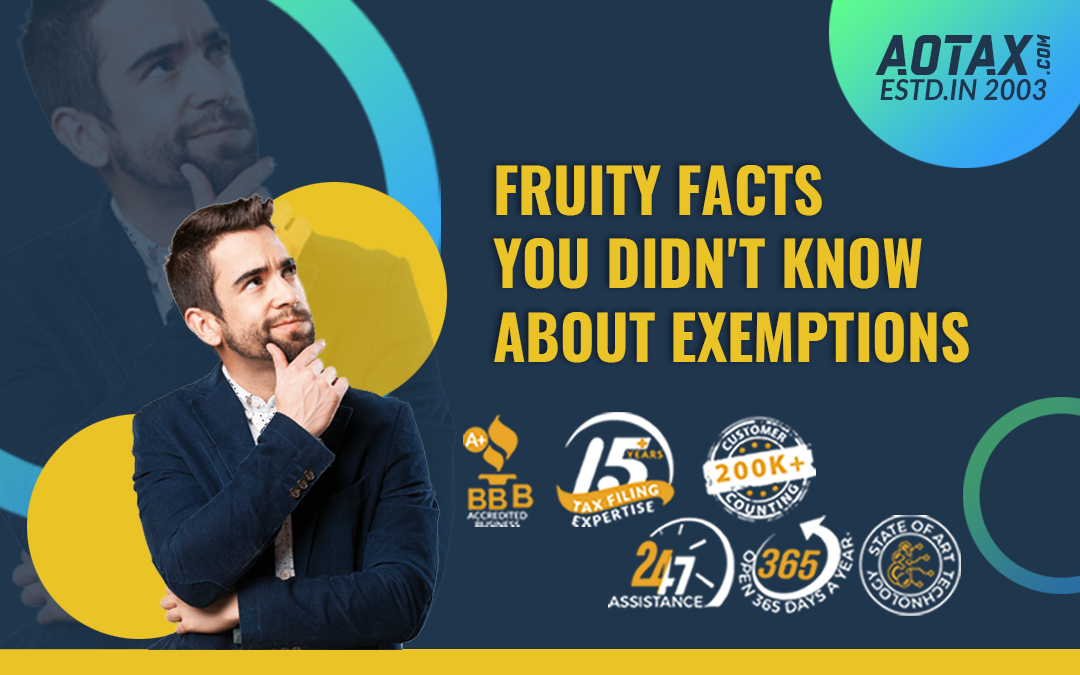
Fruity Facts You Didn’t Know about Exemptions
Fruity Facts You Didn’t Know about Tax Exemptions
If you file your tax return, you can’t help but love the different exemptions allowed by IRS. After all, these exemptions reduce your tax burden. In fact, if you are in the lowest tax bracket, the aggregate exemption which you can claim could also bring your tax liability to zero!
IRS allows two types of exemptions when you are computing your tax liability. These exemptions are as follows:
- Personal exemption which is allowed for yourself and your spouse
- Exemption for dependents which is allowed for dependent children and qualifying relatives.
Do you know the amount of exemption you can claim in your return? For the year 2016, each deduction that you can claim is $4050. While you might know that both personal and dependent exemptions help in lowering your taxes, here are some fruity facts you didn’t know about these exemptions:
You can claim your spouse as a dependent when filing jointly
Your spouse is never considered your dependent. However, if you are filing your tax under the ‘married filing jointly’ tax status, you can claim one exemption for yourself and one for your spouse.
You can claim your spouse’s exemption even after he/she dies
If your spouse dies in any year, you can claim an exemption for your spouse on your tax return for that year if you are filing your tax jointly. However, if you are filing your taxes separately, you can claim your dead spouse as a dependent only if your spouse did not have any income, was not filing any tax return himself/herself and was not claimed as a dependent of another tax-paying individual.
You would be eligible for a double exemption if you remarry in the year of your spouse’s death
If you remarry in the year your spouse died, you can be included as a dependent in your dead spouse’s return filed separately and also on your new spouse’s return which should also be filed separately. Thus, you can bestow double exemptions.
You can claim any number of exemptions
Besides availing exemptions for yourself and spouse, you can also claim exemptions for dependent children and dependent relatives. In case of exemptions for dependents, there is no maximum limit. You can claim exemptions for every child you have and also for every relative who qualifies the IRS dependency test.
A child born on the last day of the year can also be claimed as a dependent
If you deliver a baby on 31st December which is the last day of the financial year, the child would qualify as your dependent and you can claim an exemption for the new born baby too even if the baby has been with you for only a day in that particular year.
Exemptions are dynamic in nature
Yes, it is true. The amount of each exemption allowed by the IRS changes every year with the latest being $4050. The exemption in 2015 was $4000 while in 2014 it was $3950. So, the amount of exemption increases every year which is very good for your tax liability.
Did you know these facts? Now you do. Exemptions are a great way to lower your tax liability and since there is no cap on the maximum exemption one can avail, you should enjoy them to their fullest possible potential.



Recent Comments